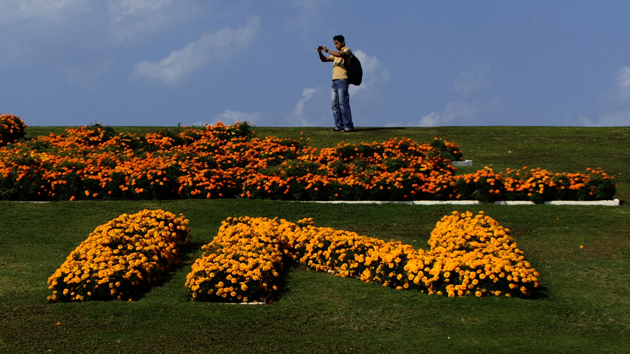
In April, Triple Canopy organized a forum called Critical Language, during which a group of artists, writers, curators, arts administrators, and other cultural workers discussed the “political implications and uses” of specialized language in the art world. The forum itself was inspired by the specific thread of that debate tweaked by Mostafa Heddaya’s March 2013 Hyperallergic article “When Artspeak Masks Oppression,” which analyzed the language deployed by the Guggenheim Abu Dhabi project and its representatives, and the subsequent response by Guggenheim director Richard Armstrong, also published by Hyperallergic.
While preparing to participate in the forum, I wrote a series of notes on the idea of International Art English, which represent my several perspectives on the topic. First, as a member of the GulfLabor Working Group, a coalition of artists and others working to ensure that workers’ rights are respected during the construction of new cultural institutions in Abu Dhabi. Second, as an artist who has produced work in countries where state censorship is prevalent.
The Islands of Evasion: Notes on International Art English
by Mariam Ghani
..In the specific case of the transformation of Saadiyat Island, or the Island of Happiness (the literal translation of its Arabic name), into an international cultural hub, there is a widely acknowledged gap between the rhetoric of the project and its reality. It is difficult, however, to hold the rulers of Abu Dhabi, or their proxies at the Tourism and Culture Authority, or their international partners at the Louvre, the Guggenheim, New York University, and the British Museum, to “their word” on labor rights or freedom of expression, when their words are largely “euphemism, question-begging and sheer cloudy vagueness.” It is also difficult to advocate for people whose rights, possibilities, and freedoms have been all been delimited from the moment they accepted their contracts and were redefined as “migrant workers” or “guest laborers.” This linguistic shift, as Luntz would recognize, has real-world consequences. And one logical response is the activist attempt to ground the unmoored abstractions of political debates over citizenship, subcontracting, and corporate or state responsibility in the specific realities of individual lives and human costs—another shift in the terms of the debate.
Read full article here